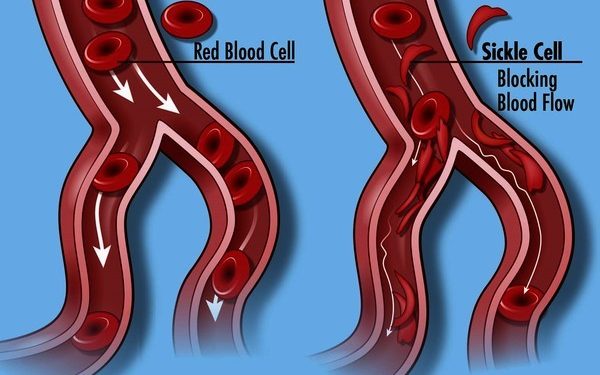Public Health Nurses, Bernice Konadu Donkor and Naomi Naa Korkoi Tetteh with the Tema General hospital, have advised Ghanaians that early diagnosis is essential in providing proper preventive treatment for some of the devastating complications of sickle cell disease.
Sickle cell disorders are a group of illnesses that affect red blood cells.
They cause a person’s normal round and flexible blood cells to become stiff and sickle-shaped, stopping them and the oxygen they carry from moving freely around the body.
It is estimated that about 15,000 babies are born with sickle cell disease in Ghana each year.
In an interview on Plan B FM ‘Apomuden Fie’ with Nana Konadu Okontie,They indicated that the disease cannot remain on the back burner; and advised people living with sickle cell to seek appropriate medical attention and also provide quality healthcare for persons living with sickle cell anaemia, especially in emergency situations.
“Newborns are regularly screened for sickle cell disease on after birth. Early diagnosis is key. This is because children with sickle cell disease may be more vulnerable to serious infections within weeks of birth. Testing early helps ensure infants with sickle cell get the proper treatment to protect their health”
“Sickle cell disease involves the red blood cells, or hemoglobin, and their ability to carry oxygen. Normal hemoglobin cells are smooth, round, and flexible, like the letter “O,” so they can move through the vessels in our bodies easily. Sickle cell hemoglobin cells are stiff and sticky, and form into the shape of a sickle, or the letter “C,” when they lose their oxygen. These sickle cells tend to cluster together, and cannot easily move through the blood vessels. The cluster causes a blockage and stops the movement of healthy, normal oxygen-carrying blood. This blockage is what causes the painful and damaging complications of sickle cell disease”
“Sickle cell disease primarily affects those of African descent and Hispanics of Caribbean ancestry, but the trait has also been found in those with Middle Eastern, Indian, Latin American, Native American, and Mediterranean heritage. It is an inherited disease caused by a genetic mutation. It has been estimated that 2 million People have sickle cell trait. Millions worldwide suffer complications from sickle cell disease”
They also added that, People with sickle cell disease start to have signs of the disease during the first year of life, usually around 5 months of age. Symptoms and complications are different for each person and can range from mild to severe.
The nurses also advised parents of sickle cell patients to make sure their children get the right nutrition.










Discussion about this post